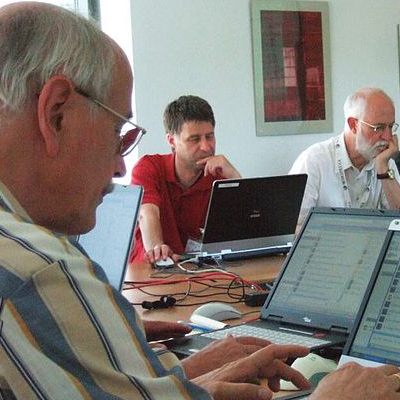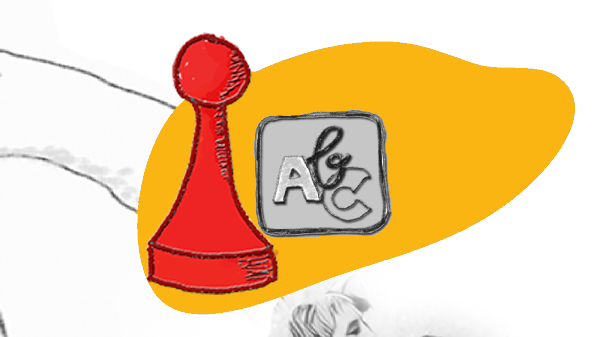Module - Basic education
Target Groups
Basic education has different target groups, each with their own needs, characteristics and challenges. The main ones are described below (they often overlap):Native people with low literacy skills

Offers for this target group aim on .
- the development of literacy competence (1), especially in the ability to express oneself in written language and to be able to read and interpret longer texts
- the development of mathematical competence and competence in science, technology and engineering (3) in order to be able to recognize and solve mathematical problems relevant to everyday life and work
- the development of personal, social and learning to learn competence (5), especially to reflect upon oneself, the awareness of one's own learning process and one's own learning needs, the identification of the available learning opportunities and the ability to overcome obstacles in order to successfully learn
- the development of citizenship competence (6)
- the development of entrepreneurship competence (7)
- the development of cultural awareness and expression competence (8)
Second chance learners

Offers for this target group aim on .
- the development of literacy competence (1), especially in the ability to express oneself in written language and to be able to read and interpret longer texts
- the development of mathematical competence and competence in science, technology and engineering (3) in order to be able to recognize and solve mathematical problems relevant to everyday life and work
- the development of personal, social and learning to learn competence (5), especially to reflect upon oneself, the awareness of one's own learning process and one's own learning needs, the identification of the available learning opportunities and the ability to overcome obstacles in order to successfully learn
- the development of digital and technology-based competence (4) as safe, critical and self-determined use of IT for work, leisure and communication
- the development of citizenship competence (6)
- the development of entrepreneurship competence (7)
- the development of cultural awareness and expression competence (8)
Refugees & migrants

Offers for this target group aim on .
- the development of multilingual competence (2), especially in the ability to express oneself in spoken and written language and to be able to read and interpret texts with focus on acquisition of the country's official language(s) where they live now
- the development of personal, social and learning to learn competence (5), especially to reflect upon oneself, the awareness of one's own learning process and one's own learning needs, the identification of the available learning opportunities and the ability to overcome obstacles in order to successfully learn
- the development of citizenship competence (6)
- the development of ultural awareness and expression competence (8)
Job seekers

Offers for this target group aim on .
- the development of personal, social and learning to learn competence (5), especially to reflect upon oneself, the awareness of one's own learning process and one's own learning needs, the identification of the available learning opportunities and the ability to overcome obstacles in order to successfully learn
- the development of digital and technology-based competence (4) as safe, critical and self-determined use of IT for work, leisure and communication
- the development of entrepreneurship competence (7) as the ability of individuals of turning ideas into action
- the development of multilingual competence (2)
Elderly people

Offers for this target group aim on .
- the development of personal, social and learning to learn competence (5), especially to reflect upon oneself, the awareness of one's own learning process and one's own learning needs, the identification of the available learning opportunities and the ability to overcome obstacles in order to successfully learn
- the development of digital and technology-based competence (4) as safe, critical and self-determined use of IT for work, leisure and communication
- the development of multilingual competence (2), especially in the ability to communicate in this language
- the development of cultural awareness and expression competence (8)
People with special needs

Offers for this target group aim on .
- the development of personal, social and learning to learn competence (5), with a focus on creating a safe place where learning is possible and strengthening the ability of concentration, but also to reflect upon oneself, the awareness of one's own learning process and one's own learning needs, the identification of the available learning opportunities and the ability to overcome obstacles in order to successfully learn
- the development of literacy competence (1), especially in the ability to express oneself in spoken and written language
- the development of citizenship competence (6)
- the development of cultural awareness and expression competence (8)
 |
 |
 |






























